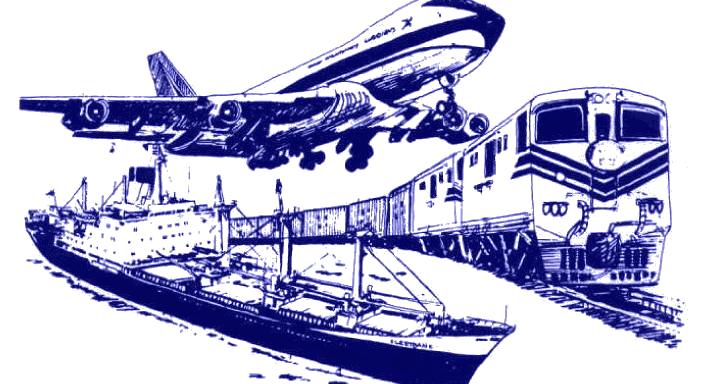 Insurance is one of the most significant issues impacting a third party business relationship.
Insurance is one of the most significant issues impacting a third party business relationship.
Unfortunately, insurance as it pertains to the warehouse industry is often subject to misunderstanding by the depositor, the warehouseman and even the insurance provider.
As such, it is important to understand the following regarding insurance and the warehouse industry:
Although the warehouse has entered into a bailee/bailor relationship with the depositor, the depositor often assumes (inappropriately) that it is outsourcing all risk associated with its goods;
Depending on circumstances, the warehouse should consider obtaining several diverse and distinct types of insurance, including: warehouse legal liability, business interruption, comprehensive general, completed operations.
In the third party relationship, the depositor does not relinquish title to the goods. Therefore, the depositor retains the risk of loss and/or damage to his goods while such goods are in the warehouseman’s possession. The bailee, i.e., the warehouseman, is only responsible to the bailor, i.e., the depositor, for such loss or damage to the property as results from negligence on the part of the bailee. In other words, the warehouseman’s liability is limited to loss or damage to the depositor’s goods attributable to warehouse negligence.
The warehouseman’s legal liability insurance is not coverage on the depositor’s goods rather; warehouse legal liability insurance provides coverage when warehouse negligence results in damage or loss to the depositor’s goods.
A warehouseman is liable for damages for loss of or injury to the goods caused by its failure to exercise such care in regard to them as a reasonably careful man would exercise under like circumstances but unless otherwise agreed he is not liable for damages which could not have been avoided by the exercise of such care.
As such, the warehouseman cannot state that it will be liable only for willful negligence.
Damages may be limited by a term in the warehouse receipt or storage agreement limiting the amount of liability in case of loss or damage, and setting forth a specific liability per article or item, or value per unit of weight, beyond which the warehouseman shall not be liable; provided, however, that such liability may on written request of the bailor at the time of signing such storage agreement or within a reasonable time after receipt of the warehouse receipt be increased on part or all of the goods thereunder, in which event increased rates may be charged based on such increased valuation, but that no such increase shall be permitted contrary to a lawful limitation of liability contained in the warehouseman’s tariff, if any. No such limitations is effective with respect to the warehouseman’s liability for conversion to this own use.
Conversely, a warehouseman may be asked to increase his liability beyond the negligence standard; however, the consequence may be a loss of warehouse legal liability protection. Thus, one should not agree to contract language that might be construed as elevating the warehouseman’s duty of care, i.e., warehouseman shall guarantee the safety of the goods in storage or warehouseman will prevent any and all damage to goods. Most warehouse legal liability policies will not respond if the warehouseman has increased his duty of care.
A depositor’s demand that the warehouseman elevate his duty of care beyond that required by law will most certainly negate the warehouseman’s legal liability insurance. This obviously will have a detrimental impact on both parties.
Liability and Limitation of Damages.
The Warehouseman shall not be liable for any loss or injury to goods stored however caused unless such loss or injury resulted from the failure by the warehouseman to exercise such care in regard to them as a reasonably careful man would exercise under like circumstances and warehouseman is not liable for damages which could not have been avoided by the exercise of such care.
Goods are not insured by the warehouseman against loss or injury however caused.
The Depositor declares that damages are limited, however, that such liability may at the time of acceptance of the contract be increased upon Depositor’s written request on part or all of the goods hereunder in which event an additional monthly charge will be made based upon such increased valuation. Where loss or injury occurs to stored goods, for which the warehouseman is not liable, the Depositor shall be responsible for the cost of removing and disposing of such goods and the cost of any environmental cleanup and site remediation resulting from the loss or injury to the goods.
One frequently asked question is, what constitutes an appropriate limitation of damages, i.e., how should be completed. There is no standard limitation, as to do so might be construed as an antitrust issue. However, the warehouseman retains the right to assess an additional charge for the increased limitation under such circumstances.
The limitation should be based on the total exposure and the limits of the warehouse legal liability insurance carried by the warehouseman. It is important that the warehouseman works closely with its insurance provider to ensure adequate coverage capable of responding to claims submitted on behalf of multiple accounts if necessary. In defining a limitation of damages, it is important that the depositor understands that the goods are not insured for full value by the warehouseman. Therefore, it is in the best interest of the depositor to retain insurance on the goods while such goods are under the care, custody and control of the warehouseman.
Some customer contracts require that calculation at the time of loss be based on the selling price of the goods. However, warehouse legal liability policies will not respond in this situation, as the warehouse can only be held liable for the manufactured landed costs of the goods. All warehouse legal liability policies exclude additional assumed liability on the part of the warehouseman.
Contracts often contain insurance clauses requiring that the depositor be identified as an additional insured on the warehouseman’s comprehensive general liability, workers compensation, and warehouse legal liability insurance policies. It is important that the warehouseman discuss this issue with its insurance carrier before committing to adding the depositor as an additional insured on the various types of policies. Although there may not be a problem with adding the depositor as an additional insured on the general liability policy to do so on the warehouse legal liability policy may have detrimental consequences.
Warehouse legal liability is a third party liability policy; it will pay for loss or damage to property of others while in the warehouseman’s care, custody and control when it is attributable to warehouse negligence. Adding the customer to the warehouse legal liability policy could negate coverage since the depositor cannot be liable to itself.
The warehouseman may need to consider other types of insurance options. If he is providing value-added services for the customer, any exposure associated with that service is beyond the scope of warehouse legal liability coverage. Completed operations insurance should be considered under such circumstances. Warehousemen, especially those that store chemical products, should consider pollution contamination remediation insurance. Business interruption insurance is extremely valuable in the event that the warehouse ceases operation for a limited time, i.e., fire or other situation.
It is crucial that the depositor understands that it cannot out-source all risk and liability associated with its product simply by outsourcing its logistics needs. The International Warehouse Logistics Association’s non-negotiable warehouse receipt specifically states, the property covered by this receipt has not been insured by this Company for the benefit of the depositor against fire or any other casualty. As such, it is important that the depositor retain adequate insurance on its product while it is in the possession of the warehouseman.
Source: www.iwla.com



